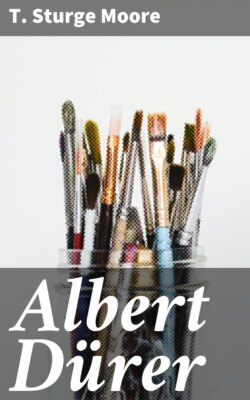Читать книгу Albert Dürer - T. Sturge Moore - Страница 44
На сайте Литреса книга снята с продажи.
III
ОглавлениеTable of Contents
Greatness demands self-assertion; self-assertion is a great virtue even in a Julius II. There is a vast deal of humbug in the use we make of the word humility. We talk about Christ's humility, but whose self-assertion has ever been more unmitigated? "I am the Way, the Truth, and the Light." "Learn of Me that I am meek and lowly, and ye shall find rest to your souls." No doubt it is the quality of the self asserted that justifies in our eyes the assertion; humility then is not opposed to self-assertion. When Michael Angelo shows that he thinks himself the greatest artist in the world, he is not necessarily lacking in humility; nor is Luther, asserting the authority of his conscience against the Pope and Emperor; nor Dürer, saying to us in those little finely-dressed portraits with which he signs his pictures, "I am that I am--namely, one of the handsomest of men and the greatest artist north of the Alps." Or when Erasmus lets us see that he thinks himself the most learned man living,--if he is the most learned, so much the better that he should know this also as well as the rest. The artist and the scholar were bound to feel gratitude for the corrupt but splendid Church and courts, which gave them so much both in the way of maintenance and opportunity. It may be asked, has all the honesty and the not always evident purity of Protestantism done so much for the world as those dissolute Popes and Princes? And the artist, judging with a hasty bias perhaps, is likely to answer no.
